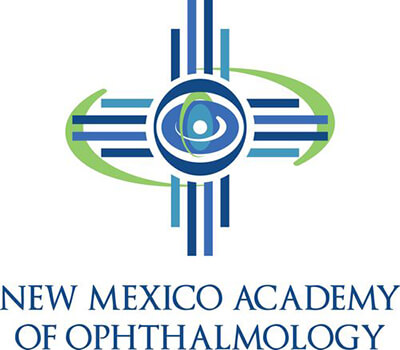60% of Americans with diabetes skip annual sight-saving exams

Published in the Albuquerque Journal on Nov. 10, 2020
People with diabetes are at increased risk of developing serious eye diseases, yet most do not have sight-saving, annual eye exams, according to a large study. The New Mexico Academy of Ophthalmology joins the American Academy of Ophthalmology in reiterating the importance of eye exams during the month of November, which is observed as Diabetic Eye Disease Awareness Month.
Researchers at Wills Eye Hospital in Philadelphia have found that more than half of patients with the disease skip these exams. They also discovered that patients who smoke – and those with less severe diabetes and mild or no eye problems – were most likely to neglect having these checks.
The researchers collaborated with the Centers for Disease Control and Prevention to review the charts of close to 2,000 patients age 40 or older with Type 1 and Type 2 diabetes to see how many had regular eye exams.
Their findings over a four-year period revealed that:
• Fifty-eight percent of patients did not have regular follow-up eye exams.
• Smokers were 20% less likely to have exams.
• Those with less-severe disease and no eye problems were least likely to follow recommendations.
• Those who had diabetic retinopathy were 30% more likely to have follow-up exams.
One-in-10 Americans have diabetes, putting them at heightened risk for visual impairment due to diabetic retinopathy. The disease also can lead to other blinding ocular complications if not treated in time.
Fortunately, having a dilated eye exam yearly or more often can prevent 95% of diabetes-related vision loss.
Eye exams are critical as they can reveal hidden signs of disease, enabling timely treatment. This is why the Academy recommends people with diabetes have them annually or more often as recommended by their ophthalmologist, a physician who specializes in medical and surgical eye care.
“Vision loss is tragic, especially when it is preventable,” said Dr. Ann P. Murchison, lead author of the study and director of the eye emergency department at Wills Eye Hospital. “That’s why we want to raise awareness and ensure people with diabetes understand the importance of regular eye exams.”
“Early detection and treatment for diabetic retinopathy may not only save sight before permanent vision complications develop, but also the interventions needed may be much less invasive for the patient when caught early,” says Dr. Kamalesh Ramaiya, retina specialist with the New Mexico Academy of Ophthalmology. “It is not infrequent that we see patients with very advanced, vision threatening diabetic retinopathy that was found on routine screening without any significant symptoms present.”
To learn more ways to keep your eyes healthy, visit the American Academy of Ophthalmology’s EyeSmart website at aao.org/eye-health.
Visit the New Mexico Academy of Ophthalmology at nmao.org.
